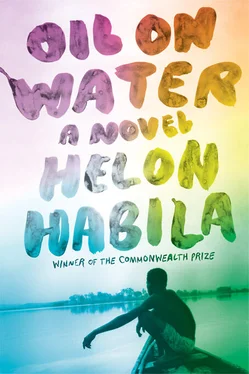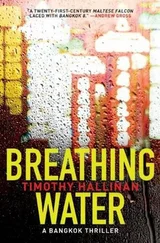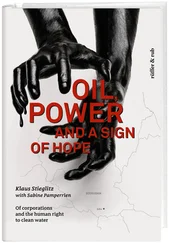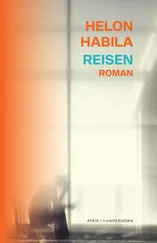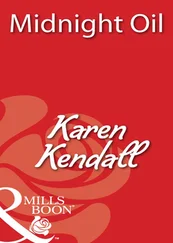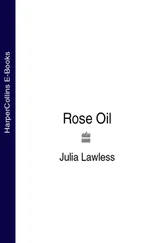I paused when I heardZaq snoring. He had asked me the question that had started me on this memory-rummaging, and he hadn’t waited to hear the answer. But I was happy to see him sleeping. I was a bit nervous about what the test results would be tomorrow. I turned and faced the open window of the shed, gazing at the sky, unable to sleep. The memories were like floodgates, easier to open than to close.
Here I waswith my certificate, going back home, leaving Port Harcourt for good, I hoped. But when I at last located my family, it was not where I had left them, in the town where I was born and raised. I found out that after moving to a succession of smaller houses, they had finally moved to a place called Junction, whose economy rode on the back of the two asphalt roads that neatly divided the town into four equal parts. My mother looked thinner, tired, and she didn’t talk very much. She had appeared briefly excited at my return, hugging me and asking me questions about my time in Port Harcourt; then, as if that display of emotion had drained her of her little reserve of energy, she retreated to the kitchen, not to cook but to stare into the flames in the hearth. My father, on the other hand, was full of energy, almost fidgeting with it, unable to sit still.
— Come.
He took me to a large barn at the back of the house. Even before he opened the door I could smell the petrol, and when he turned on the light I saw more than ten drums, most of them empty. We sat on two wooden stools in a clear space between two drums.
— Now that you have your certificate, what are your plans?
He hadn’t even touched the certificate. He had only glanced at it and nodded distractedly.
— I don’t know. I’ll look around and maybe open a photo shop—
— No, not in this town. There’s nothing here.
He pointed at the empty oil drums.
— This is the only business booming in this town. I buy from little children. I buy cheap and I sell cheap to the cars that come here at night. Emmanuel, John’s father, is my partner. You remember your friend John? Well, Emmanuel has proved himself to be a true friend. He’s the only one of my former colleagues whom I can still call a friend. He came up with this plan. We started the whole thing with his savings. It’s not a bad business, really. We get by, we give the police a little something to look the other way, but sooner or later they’ll get greedy. They’ll arrest us, or take over the whole business themselves. I don’t want you to be here when that happens. There’s nothing for you here. Go back to Port Harcourt. You’re smart. Talk to your master. You’ll find something. And when you do, don’t forget us. Don’t forget your mother, and especially your sister.
All I could ask, after he had finished speaking, was, Where do the children get the petrol you buy from them?
— They come to me with their little gallons and I don’t ask them where they get it.
In the two days I spent at home before returning to Port Harcourt, I saw how much my father had changed. He had turned his back on religion, and now smoked and drank ogogoro almost nonstop. He left home early in the morning in a pickup truck to go to the bush, where he and his partner bought the petrol from the kids, and he returned home only after midnight, often drunk. The house stank of petrol and cigarettes. He said he smoked just to kill the smell.
I fell into journalism out of necessity, not because I had proven talent like Max Tekena, or vision, or any ambition to be the next Zaq. I just walked into a newspaper office in Port Harcourt and presented my photography certificate. I returned to Port Harcourt, but I did not take my father’s advice. I did not go back to Udoh Fotos of Creek Street, Diobu; instead I went to the offices of Whispers magazine. It was a small monthly magazine whose photography editor had sometimes bought pictures of street scenes and the waterfront from my master to fill up empty pages, and I’d been the one who took the pictures in a brown envelope to his office. Now he listened to me and when I was through he shook his head.
— How old are you?
— I’m eighteen.
— I’ll give you a job, but on a temporary basis. Have you ever thought of becoming a journalist? Not just a photographer, but a real reporter. You could go to school in Lagos. I have a form here: fill it out and post it. They give scholarships. Give it a try.
I gave it a try, and for six months, as I waited to hear back from the Ikeja School of Journalism, I did odd jobs at Whispers, cleaning the office in the morning, washing the managing editor’s car once a week, running errands, and taking pictures of hawkers and fishermen and market women for the “Pictures from the Streets” page. In return I was paid a thousand naira a month, and was allowed to sleep in the office. That was how I became a journalist.
Zaq snored on. I wanted to ask him how he became a journalist. What inspired him. If he enjoyed being one, and if there were moments when he felt like giving up. He had looked close to giving up when I met him that day at the waterfront, the day we set out on this assignment.
We left the oil-company jetty early that day, six of us, five reportersincluding Zaq and myself. The kidnapped woman’s husband, James Floode, and two other white men were there to see us off. He looked distracted and after a brief address to us, in which nothing new was said apart from an exhortation to be careful, and during which he kept turning to whisper to one of the men, he said nothing more. Our guide wore a gun on his waist and his green shirt and blue trousers and calf-length boots had the semblance of a military uniform. Although he looked physically intimidating, over six feet tall with a clean-shaven pate, my hope was that he was good with that gun. There were men wearing similar uniforms all over the oil-company premises, some with machine guns that they kept shifting from hand to hand, as if itching to use them.
I tried to cover my nervousness at this open show of firepower, but I could see I was not the only one feeling nervous. The other reporters kept glancing at our guide’s gun as well. The oil company had decided to replace two Port Harcourt reporters with two from Lagos, and I felt surprised and pleased that I wasn’t one of the two dropped. Perhaps they wanted someone young, with a fresh perspective, or perhaps my photographer’s credentials had secured me a place, but it didn’t matter. The Lagos reporters were dressed in suits and ties and soft city shoes, as if they were going for a press briefing in a conference room in Ikoyi. They were sitting on the front bench, right next to our guide, who was hunched over the wheel. They hadn’t introduced themselves, so I had no idea what paper they worked for. One of them was trying to make notes in the open, windy boat, pressing down his notebook with one hand; the other was shouting into his mobile phone, battling against the engine’s roar and the increasingly poor service.
I sat next to Zaq and introduced myself, shouting over the loud noise of the boat engine.
— Rufus, from the Reporter .
— A good paper.
After that he went quiet, his arms tucked under his orange life jacket, his red, teary eyes focused on the vast blue water leaping toward us. Clearly he didn’t remember me. I hid my disappointment, and reminded myself it had been five years since that day at Bar Beach, and five years since I made my phone call to him. I wanted to compare views with Zaq, to see if he thought we were in any danger from the kidnappers, but he kept his eyes on the water, appearing at times to be sleeping, his face lowered into his bulky life jacket. He looked queasy, already seasick. Looking at him — the curled gray tufts in his hair, the thick midsection resting in his lap, a testament to his love affair with the bottle — I found it hard to believe that this was once the most famous reporter in Lagos, and probably in all of Nigeria.
Читать дальше
